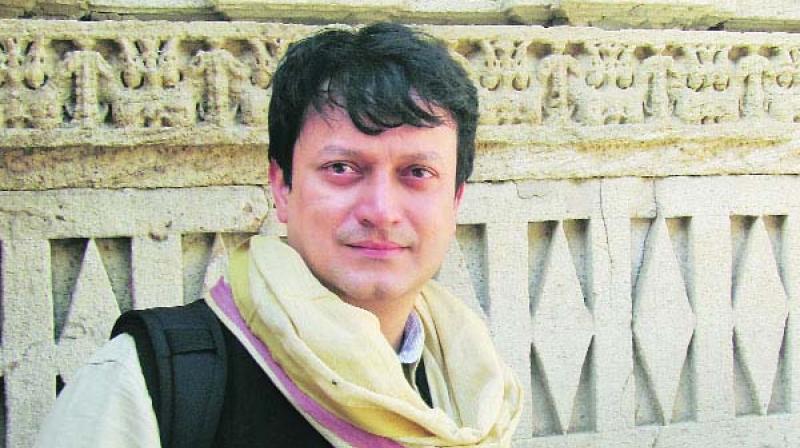Bengaluru Poetry Festival: Want to break free from identity slots, says Hoskote

Bengaluru: If there's one thing Ranjit Hoskote, poet and art critic, dislikes, it's being put in a box. "People like to slot other people and if there's one thing poetry helps you do, it's to dismantle boxes of identity and embrace all the strangeness that goes into what we believe is familiar," he said, during his Sunday afternoon session at the Bengaluru Poetry Festival 2017. This idea came to him early on, when telling someone where he came from meant "a little lecture" about his diasporic Kashmiri roots. His own origins, he found, were filled with complexities and contradictions. They simply could not conform to the "prescripted identity" society appeared to be handing him.
"These identities are usually based on ideological constructs that are usually rubbish," he said later. "They exclude everything that is strange and difficult and transgressive." Hoskote's is an important voice of dissent - to him, it marks the call of art in an increasingly restrictive socio-political fabric. "It's really important to me, in my life and my art, to always be a contrarian in this matter, to always point to the plural identities that we have, to look at the contradictions within ourselves." That there was no simple answer to the question, "Where are you from" appeared to leave people baffled. "There is a point of origin in Kashmir and the evidence of all that is in our everyday lives. It's in my mother's musical preferences, in our prayers, our religious lives, our secular lives. Why would I exchange this richness for some sort of linguistic identity?" he asked, pausing for a moment on stage to hum Beethoven's Opus 61 to make his point.
"The more I looked at other people, I realised they have confluential identities too. This is a subcontinent of migrations. Why would anybody sit in a box when they can range freely? Sit in a box if you like, but don't order me to sit in one as well." This tendency to break free of social identities received the full support of his parents: Hoskote was 15 years old when his father took him to meet Nissim Ezekiel for the first time. “They wanted me to go to art school, I blundered foolishly into natural sciences. My parents created a liberated zone for me to think and dream and imagine," he said. Two years later, Hoskote sent Ezekiel his first poems, marking the start of a long, affectionate relationship in which the latter would serve as mentor and friend. "The sea outside his window, he knew that sea long before God parted it for Moses: he'd probed the edge where shelves drop into trenches..." he writes in Passing a Ruined Mill, in his tribute to the great poet.
Daniel Weissbort, the poet and translator who founded Modern Poetry in Translation with Ted Hughes, was another great influence on Hoskote, in his role as a translator. Hoskote, who has translated the works of Marathi poet Vasant Abaji Dahake, describes translation as "a form of hospitality, said "I don't have much time for people who talk about the losses in translation. There is an apparatus around the translated text - the introduction, the annotations, the bibliography - we fixate on the text as a fetish, in poetry, particularly. There are other gestures of hospitality. There are things you take away through translation but there are also things you can bring."

